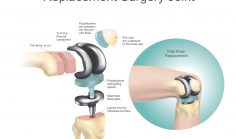Sexual dysfunction is when you experience a change in your ability to want or enjoy sexual activity—and can take many forms. It is not limited to erectile dysfunction or lack of interest in sex—also known as low libido. It can manifest as an inability to maintain an erection or difficulty achieving orgasm, or can involve an inability to be present in the moment. While there are many causes of sexual dysfunction and low libido, there are also many ways to increase desire and reconnect with the joy of sex once you address the problem.
Sexual Dysfunction

What Is Sexual Dysfunction
What Causes Sexual Dysfunction
There are many things that can lead to sexual dysfunction. One of the most common causes is stress—if you’re feeling overwhelmed by what is going on in your life, it may not be that easy to get “into the mood.” Aging can also alter desire, and lead to decreased libido, due to changes in hormonal levels. Certain diseases, like diabetes, heart disease, and being obese can be a cause of sexual dysfunction. Psychological issues can play a role too. Victims of sexual trauma often manifest sexual dysfunction. Drug and alcohol use, along with certain medications can also be factors. The body goes through many changes as you age. Some may interfere with your ability to enjoy sex, or carry out sexual activity comfortably. Others may contribute to sexual difficulties. The following are common causes of diseases and conditions that affect sexual health:
- Medicines that reduce sexual arousal, response or desire
- Lower natural levels of testosterone (in men), estrogen (in women during and after menopause)
- Medical conditions that make sexual activity difficult including arthritis, urinary tract infections, incontinence, prolapse of the uterus, endometriosis, vaginismus, vulvodynia, vaginal infections, urethral infections (cystitis), or heart of lung diseases
- Circulatory diseases that increase the risk of erectile dysfunction
- Prostate surgery or radiation
- Pain
- Smoking
- Alcohol and drug misuse and abuse
- Nerve diseases or conditions (e.g. spinal cord injury from a “slipped” or herniated disc, Parkinson’s disease , multiple sclerosis , stroke)
- Anxiety about body image and desirability
- Relationship problems
- Psychological problems such as performance anxiety, worry about a heart attack, or worry about being “undesirable” after a mastectomy (breast removal).
Risk Factors For Sexual Dysfunction
The following are risk factors for sexual dysfunction:
Male (Erectile Dysfunction or ED).
- Physical and medical conditions, including diabetes, heart and vascular (blood vessel) disease, neurological disorders, hormonal imbalances, chronic diseases such as kidney or liver failure, and alcoholism and drug abuse, as well as side effects of certain medications, including some antidepressant drugs.
- Psychological causes include work-related stress and anxiety, concern about sexual performance, marital or relationship problems, depression, feelings of guilt, fear of fatherhood, and the effects of a past sexual trauma.
Female (Diminished libido and/or orgasmic disorder).
- Physical and medical conditions include diabetes, heart disease, neurological diseases, hormonal imbalances, menopause plus such chronic diseases as kidney disease or liver failure, and alcoholism or drug abuse. The side effects of certain medications, including some antidepressant drugs, can also affect sexual desire and function.
- Psychological causes include work-related stress and anxiety, concern about sexual performance, marital or relationship problems, depression, feelings of guilt, fear of pregnancy and motherhood, or the effects of a past sexual trauma.
Diagnosing Sexual Dysfunction
Diseases and conditions that affect sexual health are typically diagnosed by a primary care physician. Sexual dysfunction is most often diagnosed from a patient’s symptom report, though a medical history, physical exam, and blood test may be conducted in order to confirm the diagnosis and rule out other causes.
Sexual dysfunction in women is grouped into different disorders: problems with desire, arousal problems, sexual pain, and orgasm difficulty. Changes in hormone levels, medical conditions, and other factors can contribute to low libido and other forms of sexual dysfunction in women.
Specifically, sexual dysfunction in women may be due to:
- Low libido. Fatigue, depression, and anxiety can lead to low libido, as can certain medications, including some antidepressants. Lack of sexual desire can also be caused by lower levels of the hormone estrogen.
- Vaginal dryness. Vaginal dryness can result from hormonal changes that occur during and after menopause or while breastfeeding and can lead to low libido as well as problems with arousal and desire, as sex can be uncomfortable or even painful when the vagina isn’t lubricated enough. Psychological issues, like anxiety about sex, can also cause vaginal dryness.
- Difficulty achieving orgasm. Orgasm disorders, such as delayed orgasms or the inability to have one at all, can affect both men and women. Some antidepressant medications are known to have this effect, talk to your doctor if you think your medication may be interfering with your sex life.
- Pain during sex. Pain is sometimes from a known cause, such as vaginal dryness or problems with the ovaries, but sometimes the cause of painful sex is elusive. Known as vulvodynia or vulvar vestibulitis, experts don’t know what’s behind this mysterious type of chronic, painful intercourse.
The types of sexual dysfunction men may experience include:
- Erectile dysfunction (ED). ED can be caused by medical conditions, like diabetes or heart disease, or by anxiety about having sex. Depression, chronic stress, and fatigue can also contribute to erectile dysfunction.
- Ejaculation problems. Premature ejaculation—ejaculation that occurs too early during intercourse—and the inability to ejaculate at all are the primary ejaculation problems. Causes include anxiety about sex, medications, like some antidepressants, a history of sexual or relationship trauma.
- Low libido. Psychological issues like chronic stress and depression, as well as anxiety about having sex can lead to decreased or no sexual desire. As well, decreased hormone levels—particularly if testosterone is low—physical illnesses, and medication side effects may also play a role in low libido in men.
Depending on the results of your examination, your doctor may order further testing or send you to an infectious disease specialist who is knowledgeable about sexually transmitted diseases or an endocrinologist who works with hormonal issues.
Symptoms of Sexual Dysfunction
The symptoms of male sexual dysfunction are:
- Lack of sexual desire
- Inability to get or keep an erection, or have one sufficient for intercourse
- Inability to reach an orgasm or orgasm is achieved only after an extraordinary amount of stimulation
- Premature ejaculation.
- No ejaculation
- Bloody ejaculation
The symptoms of female sexual dysfunction are:
- Lack of sexual desire
- Inability to maintain arousal during sexual activity, or doesn’t become aroused despite a desire to have sex
- Inability to experience an orgasm
- Pain during sexual contact
Prognosis
Sexual dysfunction is a common problem that can most often be treated and/or effectively cured. Speak to your doctor about your options for sexual dysfunction treatment.
Living With Sexual Dysfunction
Sex can be a powerful expression of intimacy, a lot of fun, and a great tool for protecting or improving health. Here are some suggestions on how to boost your sex life:
- Engage in protected sex, especially with new partners.
- Ask potential new partners to be tested for STDs, including HIV/AIDS, before you agree to have sexual contact.
- Be playful. Lighten the mood with humor gentle teasing, and even tickling.
- Tell the truth. Honesty fosters trust and relaxes both partners. Let your partner know how you are feeling and what you hope for in a sex life.
- Try something new. Discuss it with your partner, and be open to his or her ideas, too
- Fuel romance. Share romantic or erotic literature and poetry, and enjoy candlelit meals. Sharing an intimate experience together, sexual or not, is a powerful way of connecting intimately.
- Express your feelings. Hold hands and touch your partner often, and encourage him or her to touch you. Tell your partner what you love about him/her, and share your ideas about new sexual experiences you might have together.
- Find something that’s relaxing, whether it’s trying massage or baths together. Relaxation fosters confidence and comfort, and can help both erectile and dryness problems.
- Experiment! Try sexual positions that you both find comfortable and pleasurable, taking changes into account. For men, if erectile dysfunction is an issue, try sex with the woman on top, as hardness is less important. For women, using lubrication can help.
- Enjoy foreplay. Because it might take longer for you or your partner to become aroused, take more time to set the stage for romance, such as a romantic dinner or an evening of dancing. Or try connecting first by extensive touching or kissing.
- Use sex toys. Why not? Just be sure to keep them clean and make sure your partner is onboard for the fun.
- Deal with Erectile Dysfunction.There are lots of options available including medication to promote erections, pumps (vacuums) and penile implants. Speak with your physician about the options.
- Remember: a great sex life isn’t only about intercourse!
Screening
Sexual dysfunction is not typically screened for. Your primary care physician may ask you questions about your sex life during your physical. If you feel that you are suffering from symptoms of sexual dysfunction, tell your doctor. He or she will be able to assist you in a diagnosis and treatment plan.
Common Treatment
Male treatments include:
- Medications such as Sildenafil (Viagra), vardenafil (Levitra or Staxyn) and tadalafil (Cialis) can help achieve and maintain erections.
- Hormone Replacement therapy can help replenished diminished testosterone levels, which can hit a low point in a man’s 40s and 50s.
- Surgery. Surgical implantation options, such as pumps and implants, can help a man achieve and maintain an erection.
Female treatments include:
- Lubricants. Water-based lubricants can help to make up for diminished natural lubrication, making sex more enjoyable and less painful.
- Estrogen replacement creams. Estrogen replacement creams can help replenish vaginal tissue following post-menopausal degradation
- Medications such as Sildenafil (Viagra), vardenafil (Levitra or Staxyn) and tadalafil (Cialis) have had various reports of success for improved sexual performance in women, though there is limited research and data to support these claims.
For both males and females, counseling may be helpful in discovering and addressing underlying psychological and emotional factors behind sexual dysfunction.
Complementary and Alternative Treatment
There isn’t one magic potion that guarantees it will boost your libido. But there are some surprising and fun ways to make you and your partner feel more sexual without medical intervention. Here’s how:
- Look at a photograph of your loved one. Helen Fisher, an anthropologist at Rutgers University, found that when people look at a photo of their loved one for 30 seconds or longer, their brain begins producing dopamine, a libido booster
- Stay in shape, you’ll not only feel sexier… (Men take note) extra body fat inhibits testosterone. Both men and women benefit from exercise. The best is an aerobic workout that increases blood flow to sex organs.
- Focus on certain foods. Tomatoes, broccoli, oysters, bananas, and pomegranate juice have been touted as aphrodisiacs.
- Opt for red wine in moderation. Studies show moderate drinkers of red wine have a greater sex drive than those who don’t imbibe, or who drink white wine. Researchers attribute this to red wine’s ability to increase blood flow as well as its color.
- Wear red. Both men and women are attracted to their partners who are wearing red.
- Watch a scary movie. Studies show couples feel more amorous after watching a fright flick – or frightening themselves by skydiving.
- Have massages to relieve stress
- Certain scents are known to put people in the mood immediately, like cinnamon, vanilla and musk.
Care Guide
Whether you have permanent ED from prostate surgery, or have gone through menopause and are suffering with vaginal dryness, plus a loss of libido, there are strategies to help you regain your sexual health:
- For men who have difficulty getting an erection there are a number of options including:
- Oral medications
- Hormone replacement therapy
- Pumps or implants
- Surgery
- Counseling
For women who have a lowered libido there are also a number of options:
- Lubrication
- Estrogen replacement creams
- Counseling
When To Contact A Doctor
Make an appointment with your doctor:
- If you’re a man who is experiencing erectile dysfunction as a result of injury to the back, legs, buttocks, groin, penis, or testicles; or who has enlargement of the breasts (gynecomastia), or backache.
- If you’re a woman who is experiencing pain or dryness (atrophic vaginitis) during sexual intercourse
- If you’ve lost interest in sex
- If you have any symptoms of Sexually Transmitted Diseases including, rash, pain, warts, or blisters. Or if you have had unprotected sex with a partner partner who may be infected with STDs.
Contact your doctor immediately if:
- You are a woman who is experiencing sudden, severe pelvic pain.
- You are a man who has an erection that lasts longer than three hours (priapism) and, have taken sildenafil (for example, Viagra) or vardenafil (for example, Levitra) in the past 24 hours or tadalafil (for example, Cialis) in the past 48 hours, and you have chest pain.
- You are a man who has erection problems that occur along with pain or difficulty with urination, fever, or pain in the lower belly.
Questions For Your Doctor
The first stop with any sexual health concern should be with your primary care physician. Women may be referred to gynecologist and men to an urologist. An infectious disease specialist is a doctor who works with patients who have STDs. An endocrinologist is a specialist who diagnoses and treats hormonal issues. Depending on underlying conditions your doctor might also refer you to a neurologist, cardiologist, or therapist.
Questions For A Doctor
If you’re not enjoying sex or you lost your desire, these are the questions you might want to ask your doctor. Try not to be embarrassed. Your physician has most likely heard everything:
- Should I have my hormones tested?
- Are there medications to boost my sex drive? What are the side effects?
- Have any natural aphrodisiacs been proven to boost sexual drive?
- If you’re a man with ED, you might want to ask what your options are.
- If you’re a woman with low sex drive, you might want to ask what your options are.
- Is it “normal” to feel this way?
- Should I be tested for sexually transmitted diseases?
- How frequently should I be having sex?
Resources
- Go Ask Alice. This is a question and answer site, which allows you to search their archives for sexual dysfunction questions.
- National HIV/STD Testing Resources (sponsored by The Centers for Disease Control (CDC) where you can find a testing center by zip code.
- American Academy of Clinical Sexologists. (AACS) will give you a list of sex therapists in your area.
- American Association of Clinical Endocrinologists (AACE) will help you find an endocrinologist who deal with hormone issues
- Erectile Dysfunction Support Groups
- National Vulvodynia Association (NVA), which offers information about vulvodynia as well as support groups.
- Society for Sex Therapy and Research (SSTAR) offers a directory of sex therapists.












